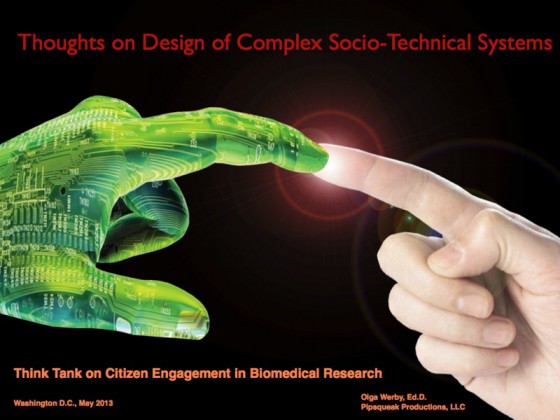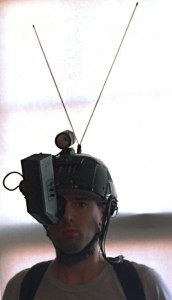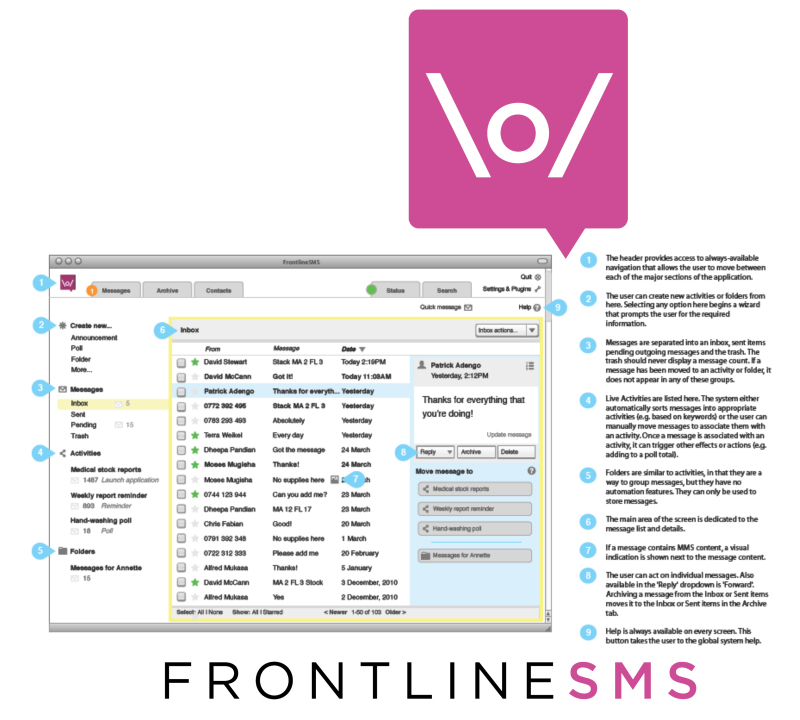Benjamin Mason Meier, Assistant Professor of Global Health Policy, is one of the creators of the Global Health and Human Rights Database. Benjamin and his colleagues wanted to collect information on different forms of legal tools used around the world to advance the human rights in health. Here is a link to his paper describing the project: “Bridging international law and rights-based litigation: Mapping health-related rights through the development of the Global Health and Human Rights Database.” I was interested in seeing his data on the map. So I used an open source project CartoDB to plot Benjamin’s data on the map. And here’s a quick visualization. Now I’m interested in comparing the resulting map with The World Bank eAtlas of Global Development maps. In particular, it would be interesting to compare GDP with focus on health-based human rights.
Tag Archive for ICT
Conceptual Design, Featured, Pipsqueak Articles, Product Design Strategy
2013 Think Tank Presentation on Socio-Technical System Design
by Olga Werby •

I’m about to leave for Washington D.C. for a Think Tank on Citizen Engagement in Biomedical Research. I have only five minutes to talk during the introductory speed geeking event, where all of us get to know about each other and each other’s projects. I’m going there to talk about our lessons learned from designing complex socio-technical systems that required intense participation from their users. I’ve been working on designing such systems for many years now. Some projects were/are very successful, some not so much. I’m not sure I will be able to give a full account of what we’ve learned, so I’m putting up a long(ish) version of my presentation here — if I had 15 minutes, this is what I would say to our very interesting group of participants. I chose these four complex socio-technical systems because all of them were in some measure educational ventures and all required outside users to contribute large amounts of data. I will start with Ushahidi. Ushahidi was born during the 2007 Kenyan election. That election was bloody and the violence, in many cases perpetrated by the government, was not being reported. Ushahidi was a grass-roots effort to tell their countrymen and…
Conceptual Design, Interaction Design, Pipsqueak Articles, Product Design Strategy, Scaffolding
BRIDGE to Health
by Olga Werby •

This week, I was invited to attend a BRIDGE Summit at Stanford. I was there to represent Ushahidi’s work and wasn’t particularly sure what to expect… But it turned out to be a very interesting brainstorming session for a new product/service in the health space: BRIDGE. Dr. Stephen Friend (M.D. and PH.D., president/co-founder/director of Sage Bionetworks) ran the show. What you will read below are just my notes, ideas, and understanding of what we were trying to do. I’m sure others at this summit came away with a whole different set thoughts, but, in the interest of advancing my own understanding and sharing of ideas in general, it seemed worth putting together a narrative of the product we were designing. So what is BRIDGE? After a two day discussion, we settled that BRIDGE is a platform (rather than an app) that will strive to: help gather medical information; crowdsource algorithms that would act on collected data with an aim to make medical advances; provide services to patients (information, education, support); facilitate research and make it easier for scientists to get access to data and to post requests for crowdsourcing projects; ease communication between all individuals and organizations working to advance…
Conceptual Design, Interaction Design, Interface Design, Perception, Pipsqueak Articles, Product Design Strategy, Scaffolding, Users
Special Preview: Wearable Computing (Steve Mann)
by Olga Werby •

The next chapter in the Interaction-Design.org tome on human-computer interaction design is now up for an early review to my readers. This chapter takes on Wearable Computing and is written by Steve Mann. Mostly, this is a historical review of Prof. Mann’s experimentations with wearable computing devices, and for those unfamiliar with this subject area, this is an interesting introduction. On the left, you can see an early version of wearable computing: Steve Mann’s backpack based system from the late 1970’s and early 1980’s. But as always, I have a slightly different take on this topic… The Little Mac That Saved My Son’s Life Almost 18 years ago, I went into a preterm labor. At 24 and a half weeks into gestation, this was very scary. At the time, San Francisco Children’s Hospital was pioneering a program for high risk pregnancies (which mine just turned out to be). Two doctors, Dr. Kuts and Dr. Maine, figured out how to use an old Mac SE, a modem, a telephone, a subcutaneous pump, and a belt which measures contractions to allow women like me to stay at home as much as we could (as opposed to spending months in the hospital). Here’s…
Anchoring Errors, Background Knowledge, Background Knowledge Errors, Causal Net Problems, Cognitive Blindness, Cultural Bias, Mental Model Traps, Pipsqueak Articles
Information in the Age of ICT: the Guardian Newspaper 3 Little Pigs Ad
by Olga Werby •
The 2012 Guardian newspaper ad really captures the flow of information in the age of ICT (Information Communication Technologies). The ad retells the story of the 3 little pigs, their houses, and the big bad wolf. It shows how stories change with spin and through propagation through social media: twitter, Facebook, email, etc. Well done!
Conceptual Design, Pipsqueak Articles, Product Design Strategy
US Rio+2.0 Speed Geeking Session
by Olga Werby •

So I’ve learned a new word: Speed Geeking. It’s like speed dating but for geeks to quickly present their ideas to a small group. You have five minutes strict, and then move on to the next presenting geek. It was a very interesting format, but it clearly had accessibility issue: I walk with a cane and I found it very hard. It would have been impossible in a wheelchair. And others with disabilities clearly had issues with this format. But that said, I’ve learned a lot. Below are my notes on the Speed Geeking event at US Rio +2.0. Noel Dickover — Senior New Media Advisor, Office of eDiplomacy, U.S. Department of State — introduced Speed Geeking and ran the event with an iron fist! FrontlineSMS Demoed by Sean Martin McDonald, Director of Operations http://www.frontlinesms.com Main Point: SMS is cheap data that is easy to structure and moves over cell networks (without Internet) Yahoo Demoed by Gil Yehuda, Director of Open Source Product Management at Yahoo! Gil talk about the use of Flickr for journalism, human rights, and keeping people safe. He raised the issue of copyright. KIVA Demoed by Beth Kuenstler, VP of Marketing & Communications If you haven’t…
Background Knowledge, Background Knowledge Errors, Conceptual Design, Cultural Bias, Cultural Differences, Ethnographic & User Data, Pipsqueak Articles, Product Design Strategy, Users
US Rio+2.0 Breakout Session on Environmental & Conservation Education
by Olga Werby •
Below are the notes from the US Rio+2.0 conference hosted at Stanford last week. The notes are from the Education: Environment and Conservation breakout session. US Rio+2.0 Breakout Session Education: Environment and Conservation Attendees: Prof. Anthony D. Barnosky: Professor and Curator, Department of Integrative Biology at University of California Berkeley Wali Modaqiq: Deputy Director General (DDG), National Environmental Protection Agency (NEPA) of Islamic Republic of Afghanistan Dr. Khalid Naseemi: Chief of Staff & Spokes Person for National Environmental Protection Agency (NEPA) of Islamic Republic of Afghanistan Julie Noblitt: The Green Ninja — Climate-action Superhero Prof. Robert Siegel, M.D., Ph.D.: Associate Professor, Microbiology & Immunology Human Biology/African Studies at Stanford School of Humanities and Sciences Dr. Beth Stevens: Senior Vice President, Corporate Citizenship Environment and Conservation at Disney Worldwide Services, Inc. Madam Anyaa Vohiri, M.A., J.D.: Executive Director, Environmental Protection Agency of Liberia Olga Werby, Ed.D.: President, Pipsqueak Productions, LLC. Mostapha Zaher: Director General (DG), National Environmental Protection Agency (NEPA) of Islamic Republic of Afghanistan Our breakout group was partly the result of the conversation started the day before in the Environment session. Some of the members of our breakout group were present in that session as well. The main discussion…
